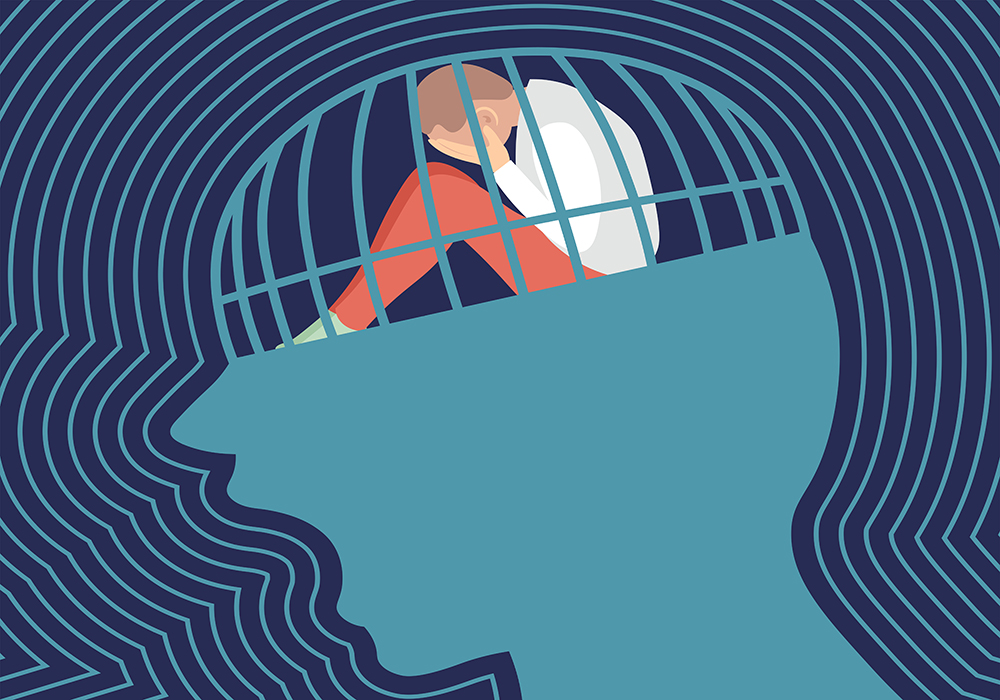In Canada, 4,500 people take their own lives each year. That’s 12 people a day who carry out their plan, but the number of attempts is much higher. Nationally, 14.7% of Canadians will have suicidal thoughts and 3.5% will make an attempt. But the number of deaths hides the real scourge…
For every person who completes suicide, there are 25 attempts, and 5 hospitalizations. This represents an average of 112,000 suicide attempts per year in Canada. Representing 75% of suicides, men use much more lethal means than women (firearms, hanging, etc.), while women represent 3 times more suicide attempts than men, using however less violent techniques to reach their end. What causes people to want to end their lives?

Two major problems stand out in the statistics regarding the causes of suicide: undiagnosed, untreated or poorly treated mental health problems (lack of a doctor/psychologist/psychiatrist, inconsistent use of medication, abuse of prescription drugs, poor or no psychological follow-up), and problems related to alcohol and drug use.
On the mental health side one of the major problems for those who seek help is the wait for access to a psychiatrist, which can take several months, when in fact a person seeking help generally needs help immediately. Waiting for a consultation over the months amplifies the psychological problems of the person which unfortunately pushes some people to take final and self-destructive measures. There is also the fact that asking for psychological help is still a very taboo subject nowadays, being seen as a sign of weakness, of failure, especially among men stigmatized in the clichés of the strong man, the man who endures in silence, which makes the majority of men who suffer hide in a psychological cave, keeping their problems to themselves in silence instead of asking for help.
The other major cause of suicide is alcohol and drug abuse, which is also related to mental health problems. Problematic heavy drinking increases the odds of attempting suicide by 7 times and very heavy drinking increases the odds of attempting suicide by 37 times. Men are more likely to have an alcohol use disorder and are more likely to have a high blood alcohol level at the time of death by suicide.

A new form of alternative help is increasingly proving itself and giving hope for the future: psychotherapy accompanied by psychedelics. The studies are few at the moment, but all indicate the same trend, namely that controlled and supervised use of psilocybin has beneficial mental effects often from the first dose and the therapeutic and wellness effects can last up to several months. The effects can last for several months and often a consultation every 2-3 months is enough to see a clear improvement in the patient’s mental health, thus requiring fewer resources in the course of therapy.
Canada is a pioneer in the field having granted nearly 50 licenses for psychotherapy using psychedelics. As therapeutic revolutions are few and far between, many clinicians are very positive about the controlled use of psychedelics and see a very promising future in this area. Another benefit that has been noted is that the use of psilocybin also helps to reduce alcohol and drug use.
We do not have the arrogance to say that psilocybin is a miracle product and that it can solve all the ills of the planet, however we believe that if the molecule is taken in conjunction with psychotherapy can save some lives and diminish the symptoms of mental illness, we are all winners as a society to open the doors wider to the study of this molecule so that it becomes accessible to the general public.
Help is available :
In Canada : Speaking suicide Canada : 1-833-456-4566
In Québec : Suicide hotline : 1-866-277-3553
Kids Help Phone : 1-800-668-6868
References:
 English
English
 Français
Français

Hi i think that i saw you visited my web site thus i came to Return the favore Im attempting to find things to enhance my siteI suppose its ok to use a few of your ideas
you are truly a just right webmaster The site loading speed is incredible It kind of feels that youre doing any distinctive trick In addition The contents are masterwork you have done a great activity in this matter
I loved as much as you will receive carried out right here The sketch is attractive your authored material stylish nonetheless you command get got an impatience over that you wish be delivering the following unwell unquestionably come more formerly again since exactly the same nearly a lot often inside case you shield this hike
Hello Neat post Theres an issue together with your site in internet explorer would check this IE still is the marketplace chief and a large element of other folks will leave out your magnificent writing due to this problem
you are in reality a good webmaster The website loading velocity is amazing It sort of feels that youre doing any distinctive trick Also The contents are masterwork you have done a fantastic job in this topic
Fantastic beat I would like to apprentice while you amend your web site how could i subscribe for a blog site The account helped me a acceptable deal I had been a little bit acquainted of this your broadcast offered bright clear concept
Wonderful web site Lots of useful info here Im sending it to a few friends ans additionally sharing in delicious And obviously thanks to your effort
Wonderful beat I wish to apprentice while you amend your web site how could i subscribe for a blog web site The account aided me a acceptable deal I had been a little bit acquainted of this your broadcast provided bright clear idea
Wonderful web site Lots of useful info here Im sending it to a few friends ans additionally sharing in delicious And obviously thanks to your effort
Very interesting details you have remarked,
regards for posting.Expand blog